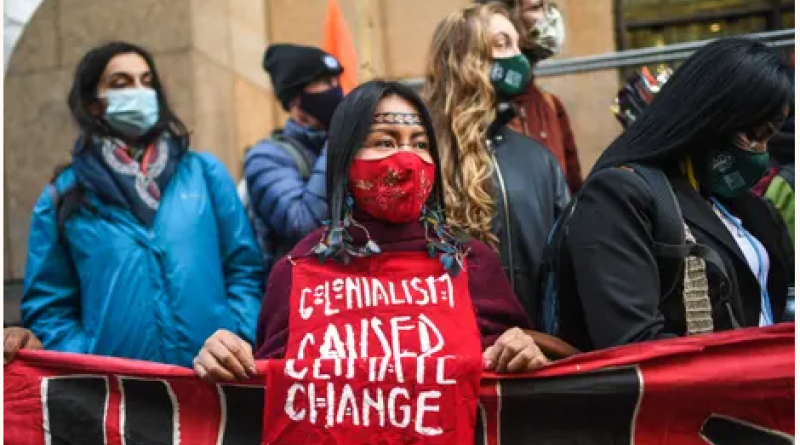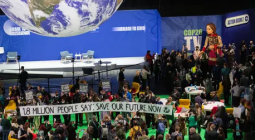Cop26 – a tragedy in two acts where the rich nations knife poor countries in the back

Despite the fine words and supposed ambition, there is little time left to reach a meaningful finale
If Cop26 were to be staged, it would be as a political drama in two long acts. Act one would see the leaders of wealthy countries such as Britain, the US and Australia smiling broadly as they strut the Glasgow stage with their friends, wring their hands and manage the world’s expectations. Act two would see them knifing each other offstage and kicking poor countries hard before running away.
The climate crisis conference, now halfway through its second week, is well into act two and the final scenes are being rehearsed in late-night talks. In a dramatic early-morning move, Alok Sharma and the UK presidency acting as the protagonist, listened to countries and produced a seven page draft “non-paper” that sets the broad outline of the final agreement that it thinks it may be diplomatically possible to reach.
It is only a first draft but to many of the players in this drama it already bodes ill, because, despite the fine words and the supposed ambition, it seems very much to reflect the agenda of the rich. It is welcomed by some because it repeats the 1.5C goal as the critical temperature target, and for the first time calls on countries to speed up the phasing out of coal and fossil fuel subsidies.
But it’s what is not in the draft that is just as important. It is full of words such as “urges” and “recognises” but there is no mention of the $100bn a year that the rich countries pledged nine years ago to help the poor adapt to climate change; no acceptance of their financial or moral responsibility for disasters; nothing about transparency or carbon markets; no plan or proposal to phase out other fossil fuels; and no acceptance that wealthy countries should act first.
Now the stage is being re-set for the world’s poor and most vulnerable countries to push back hard and try to get genuine commitments to act. The many groups of small island states, least developed nations, Africans and Latin Americans are genuinely shocked, and worried. Not only is the world on course for a catastrophic 2.4C rise in temperature and nowhere near the 1.5C target, they say, but it looks from this draft as if they are being abandoned and denied the right to either develop with coal or be financially helped to adapt to a crisis they did not cause.
Enter the chorus of NGOs, youth groups, indigenous peoples and charities that now step forward as the loud voice of the people. They, too, are shocked by the draft’s seeming lack of ambition and tell rich countries to be far more forceful. “These empty words are way off target to meet the scale of the enormous challenge facing humanity,’ says a spokesperson for ActionAid. “Far from being a real plan by governments to solve a worsening climate crisis, it is more a polite request that countries maybe, possibly, perhaps do more next year or sometime in the future,” says a Greenpeace representative.
From this point on in the Cop26 drama, the lines have not been written and it’s impossible to guess which direction the talks will go. Just possibly, the UK will play a blinder, its diplomats furiously twisting arms, calling in favours, bringing out the cash and conjuring the missing words that the poorer nations want; but it’s equally likely that Boris Johnson has overestimated his ability to bring countries together, misread the mood of the meeting and left it too late to retrieve. That might explain why the PM has rushed back to Glasgow, possibly having been made aware that diplomatic shame looms without intervention at the highest level. There is little time left to close the gaps and precious little goodwill to take in to the critical last two days of negotiations.
It is now a genuine thriller that could go either way. Over the next 36 hours, many more drafts will be cobbled together by the UK only to be rejected. But if Cop26 is anything like so many others, the poorer countries will eventually fall in line behind the more powerful ones and a shorter text will be put before the world and reluctantly accepted. The rich nations, again, will probably have their way.
But it may be many years before the critics declare Cop26 to have been a farce, a tragedy or an unlikely spectacular hit.
-
John Vidal is a former Guardian environment editor
10 November 2021
The Guardian





